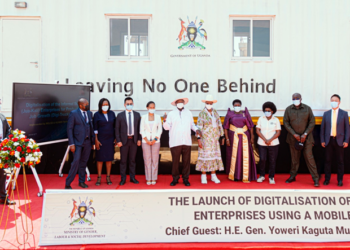By Ison Rocky A
The partnership will see PesaCheck work with Facebook to add more context to the posts on the platform.
Facebook has partnered with PesaCheck to add more context to the posts on the platform.
PesaCheck is East Africa’s first fact-checking organisation, to launch third-party fact-checking in Kenya that verifies the accuracy of news being disseminated on its platform.
Along with PesaCheck, Facebook is also working with Africa Check and AFP in Kenya to verify content on the platform.
PesaCheck was established in 2016 to verify the often confusing numbers quoted by public figures across East Africa to empower citizens to better understand public finances and make better informed decisions during participatory budget-making processes.
PesaCheck has since grown its focus to include election fact-checking, as well as claims related to how governments are delivering on public services such as health, education, water and sanitation.
According to PesaCheck managing editor Eric Mugendi, the new Facebook partnership builds on PesaCheck’s membership of the International Fact-Checking Network (IFCN), and its Code of Principles, which commits fact-checking organisations to non-partisanship, fairness and transparency, as well as an open and honest corrections policy.
PesaCheck joins a global network of 28 other fact-checking organisations worldwide who are certified by the IFCN and have partnered with Facebook to help detect and debunk misinformation in their countries.
“Part of our strategy is partnering with third-party fact-checkers to review and rate the accuracy of articles and posts on Facebook”, Tessa Lyons, Facebook Product Manager, explains. “These fact-checkers are independent and certified through the non-partisan International Fact-Checking Network. When these organisations rate v as false, we rank those stories significantly lower in News Feed. On average, this cuts future views by more than 80%. We also use the information from fact-checkers to improve our technology so we can identify more potential false news faster in the future.”
Data from Portland Communications indicates that 49% Kenyans got their news about elections in August and October 2017 from social media. A number of high-profile cases during this period exposed the extent of inaccurate and often deliberately misleading information distributed on social media.
“Our partnership with Facebook will allow PesaCheck to help combat misinformation by spotlighting information that could distort public discourse if left unchallenged. We will focus on local Kenyan content, including photos and videos, checking for factual accuracy,” says PesaCheck managing editor Eric Mugendi. “It gives us an opportunity to use innovative new ways to help people understand whether the content in their feed is credible, or not.”
If content is found to be false by PesaCheck or any of the other fact-checking organisations, Facebook will lower its ranking on News Feed, significantly reducing its distribution.
Additionally, Facebook will notify anyone looking to share a story that has previously been found to be false that the article was checked by one of the third party fact-checkers, which is a significant step in reducing the potential spread of misinformation.
Facebook’s content rating system has eight possible ratings that can be assigned to a fact-checked link. Content will be rated False if the primary claim is factually inaccurate. This generally corresponds to “false” or “mostly false” on the claims PesaCheck has looked into in the past. Content that is a mix of accurate and inaccurate claims, or where the primary claim is misleading or incomplete will be marked as Mixture. This corresponds with the ‘Inconclusive’ rating on the PesaCheck meter. Where the primary claim is factually accurate, the content will be marked as True, corresponding with the “true” or “mostly true” rating on the PesaCheck meter.
By partnering with Facebook, third party fact-checking organisations like PesaCheck are helping to sort fact from fiction. Considering that one in five Kenyans gets their daily news from social media, this is a good chance for all the organisations involved to make fact-checking more mainstream in Kenya.
Do you want us to fact-check something a politician or other public figure has said about public finances? Complete this form, or reach out to us on any of the contacts below, and we’ll help ensure you’re not getting bamboozled.
PesaCheck, co-founded by Catherine Gicheru and Justin Arenstein, is East Africa’s first public finance fact-checking initiative. It seeks to help the public separate fact from fiction in public pronouncements about the numbers that shape our world, with a special emphasis on pronouncements about public finances that shape government’s delivery of so-called ‘Sustainable Development Goals’ or SDG public services, such as healthcare, rural development and access to water and sanitation. PesaCheck also tests the accuracy of media reportage. To find out more about the project, visit pesacheck.org.
PesaCheck is a joint initiative of Code for Africa, through its local Code for Kenya chapter, and the International Budget Partnership (Kenya), in partnership with a coalition of local media organisations, with additional support from the International Center for Journalists(ICFJ).
Credit: pesacheck.org
Do you have a story in your community or an opinion to share with us: Email us at editorial@watchdoguganda.com











